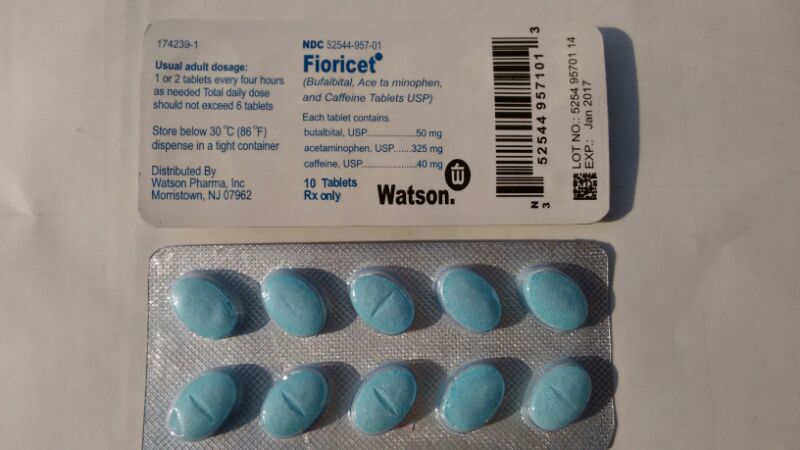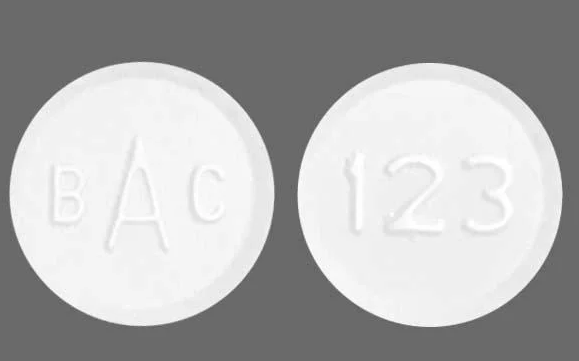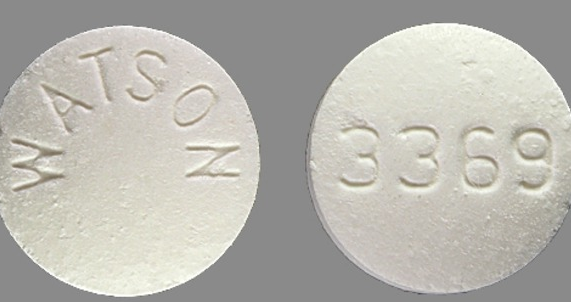Buy The Cheapest White or Blue Fioricet Online in US Licensed COD Pharmacies
| Product Name | Price | Shipping | Total | Order |
| Butalbital/APAP/Caffeine (Generic Fioricet )- 50/325/40 mg- 180 Tabs | $229 | free | $229 | Buy |
| Butalbital/APAP/Caffeine (Generic Fioricet White )- 50/325/40 mg- 180 Tabs | $249 | free | $249 | Buy |
| Butalbital/APAP/Caffeine (Generic Fioricet Blue )- 50/325/40 mg- 180 Tabs | $249 | free | $249 | Buy |
| Butalbital/APAP/Caffeine (Generic Fioricet )- 50/325/40 mg- 120 Tabs | $209 | free | $209 | Buy |
| Butalbital/APAP/Caffeine (Generic Fioricet )- 50/325/40 mg- 90 Tabs | $179 | free | $179 | Buy |
COMMON USES: This medicine is an analgesic, barbiturate, and stimulant combination used to treat tension headaches. BEFORE USING THIS MEDICINE: Some medicines or medical conditions may interact with this medicine. INFORM YOUR DOCTOR OR PHARMACIST of all prescription and over-the-counter medicine that you are taking.
Descriptions
Butalbital, acetaminophen, and caffeine combination is used to relieve symptoms of tension (or muscle contraction) headaches.
Butalbital belongs to the group of medicines called barbiturates. Barbiturates act in the central nervous system (CNS) to produce their effects.
Acetaminophen is used to relieve pain and reduce fever in patients. It does not become habit-forming when taken for a long time. But acetaminophen may cause other unwanted effects when taken in large doses, including liver damage.
When butalbital is used for a long time, it may become habit-forming, causing mental or physical dependence. However, people who have continuing pain should not let the fear of dependence keep them from using narcotics to relieve their pain. Physical dependence may lead to withdrawal side effects if treatment is stopped suddenly. However, severe withdrawal side effects can usually be prevented by gradually reducing the dose over a period of time before treatment is stopped completely.
Caffeine is a CNS stimulant that is used with pain relievers to increase their effect. It has also been used for migraine headaches. However, caffeine can also cause physical dependence when it is used for a long time. This may lead to withdrawal (rebound) headaches when you stop taking it.
This medicine is available only with your doctor’s prescription.
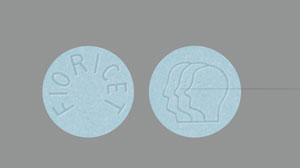
This product is available in the following dosage forms:
-
- Tablet
- Capsule
What You Should Know Before Using
In deciding to use a medicine, the risks of taking the medicine must be weighed against the good it will do. This is a decision you and your doctor will make. For this medicine, the following should be considered:
Allergies
Tell your doctor if you have ever had any unusual or allergic reaction to this medicine or any other medicines. Also tell your health care professional if you have any other types of allergies, such as to foods, dyes, preservatives, or animals. For non-prescription products, read the label or package ingredients carefully.
Pediatric
Appropriate studies have not been performed on the relationship of age to the effects of butalbital, acetaminophen, and caffeine combination in children younger than 12 years of age. Safety and efficacy have not been established.
Geriatric
Appropriate studies performed to date have not demonstrated geriatric-specific problems that would limit the usefulness of butalbital, acetaminophen, and caffeine combination in the elderly. However, elderly patients are more likely to have age-related kidney problems, which may require caution and an adjustment in the dose for patients receiving butalbital, acetaminophen, and caffeine combination.
Breastfeeding
There are no adequate studies in women for determining infant risk when using this medication during breastfeeding. Weigh the potential benefits against the potential risks before taking this medication while breastfeeding.
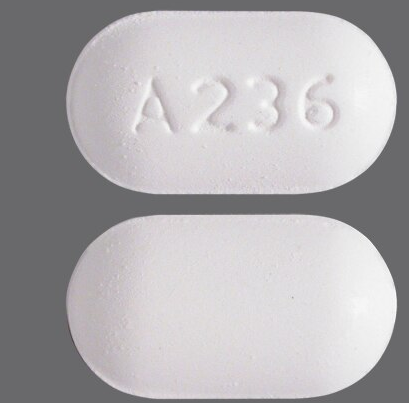
Drug Interactions
Although certain medicines should not be used together at all, in other cases two different medicines may be used together even if an interaction might occur. In these cases, your doctor may want to change the dose, or other precautions may be necessary. When you are taking this medicine, it is especially important that your healthcare professional know if you are taking any of the medicines listed below. The following interactions have been selected on the basis of their potential significance and are not necessarily all-inclusive.
Using this medicine with any of the following medicines is not recommended. Your doctor may decide not to treat you with this medication or change some of the other medicines you take.
-
-
- Riociguat
- Viloxazine
-
Using this medicine with any of the following medicines is usually not recommended, but may be required in some cases. If both medicines are prescribed together, your doctor may change the dose or how often you use one or both of the medicines.
-
-
- Alfentanil
- Alprazolam
- Amobarbital
- Anisindione
- Aprobarbital
- Barbital
- Butabarbital
- Calcium Oxybate
- Capmatinib
- Carisoprodol
- Chloral Hydrate
- Chlordiazepoxide
- Chlorzoxazone
- Clonazepam
- Clorazepate
- Dantrolene
- Darunavir
- Diazepam
- Dicumarol
- Doxorubicin
- Doxorubicin Hydrochloride Liposome
- Drospirenone
- Esketamine
- Estazolam
- Eterobarb
- Ethchlorvynol
- Ethinyl Estradiol
- Etonogestrel
- Flunitrazepam
- Flurazepam
- Givosiran
- Halazepam
- Heptabarbital
- Hexobarbital
- Imatinib
- Iobenguane I 131
- Isocarboxazid
- Isoniazid
- Ketazolam
- Linezolid
- Lorazepam
- Lormetazepam
- Magnesium Oxybate
- Medazepam
- Mephenesin
- Mephobarbital
- Meprobamate
- Metaxalone
- Methocarbamol
- Methohexital
- Methylene Blue
- Midazolam
- Nifedipine
- Nitrazepam
- Norethindrone
- Norgestimate
- Norgestrel
- Oxazepam
- Ozanimod
- Peginterferon Alfa-2b
- Pentobarbital
- Phenelzine
- Phenindione
- Phenobarbital
- Phenprocoumon
- Piperaquine
- Pixantrone
- Pneumococcal 13-Valent Vaccine, Diphtheria Conjugate
- Potassium Oxybate
- Prazepam
- Primidone
- Procarbazine
- Quazepam
- Rasagiline
- Ritlecitinib
- Safinamide
- Secobarbital
- Selegiline
- Sodium Oxybate
- Temazepam
- Thiopental
- Tranylcypromine
- Trazodone
- Triazolam
- Ulipristal
- Zotepine
-
Using this medicine with any of the following medicines may cause an increased risk of certain side effects, but using both drugs may be the best treatment for you. If both medicines are prescribed together, your doctor may change the dose or how often you use one or both of the medicines.
-
-
- Acenocoumarol
- Carbamazepine
- Fosphenytoin
- Lixisenatide
- Ospemifene
- Phenytoin
- Prednisone
- St John’s Wort
- Warfarin
- Zidovudine
-
Other Interactions
Certain medicines should not be used at or around the time of eating food or eating certain types of food since interactions may occur. Using alcohol or tobacco with certain medicines may also cause interactions to occur. The following interactions have been selected on the basis of their potential significance and are not necessarily all-inclusive.
Using this medicine with any of the following is usually not recommended, but may be unavoidable in some cases. If used together, your doctor may change the dose or how often you use this medicine, or give you special instructions about the use of food, alcohol, or tobacco.
-
-
- Ethanol
- Tobacco
-
Using this medicine with any of the following may cause an increased risk of certain side effects but may be unavoidable in some cases. If used together, your doctor may change the dose or how often you use this medicine, or give you special instructions about the use of food, alcohol, or tobacco.
-
-
- Cabbage
-
Other Medical Problems
The presence of other medical problems may affect the use of this medicine. Make sure you tell your doctor if you have any other medical problems, especially:
-
-
- Alcohol abuse, history of or
- Drug dependence, or history of or
- Weakened physical condition—Use with caution. May increase risk for more serious side effects.
- Kidney disease or
- Liver disease—Use with caution. The effects may be increased because of slower removal of the medicine from the body.
- Porphyria (an enzyme problem)—Should not be used in patients with this condition.
- Stomach problems—Use with caution. May make these conditions worse.
-
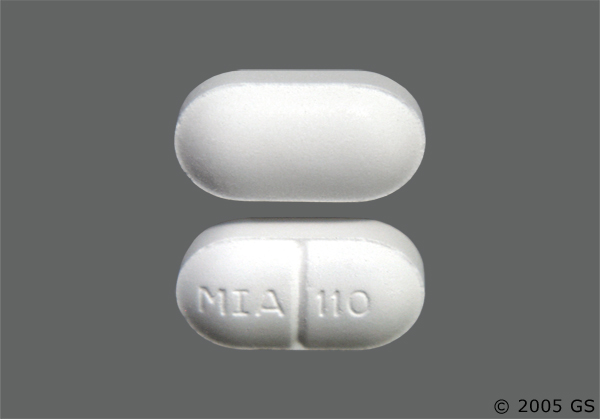
How Long Does Fioricet Stay in Your System ?
Fioricet contains three different drugs. Each drug is estimated to stay in your body for a different amount of time.
-
- Acetaminophen is eliminated after about 6 to 15 hours
- Caffeine is eliminated after about 15 hours
- Butalbital is eliminated after about 7 days
How to Use Fioricet Properly ?
Take this medicine only as directed by your doctor. Do not take more of it, do not take it more often, and do not take it for a longer time than your doctor ordered. If too much of this medicine is taken for a long time, it may become habit-forming and cause mental or physical dependence. Also, large amounts of acetaminophen may cause liver damage if taken for a long time.
Carefully check the labels of all other medicines you are using, because they may also contain acetaminophen. It is not safe to use more than 4 grams (4,000 milligrams) of acetaminophen in one day (24 hours).
Dosing
The dose of this medicine will be different for different patients. Follow your doctor’s orders or the directions on the label. The following information includes only the average doses of this medicine. If your dose is different, do not change it unless your doctor tells you to do so.
Usual Adult Dose for Headache:
Butalbital 50 mg/acetaminophen 300 mg/caffeine 40 mg: 1 or 2 capsules orally every 4 hours as needed not to exceed 6 capsules per day
Uses: For the relief of the symptom complex of tension (or muscle contraction) headache.
Usual Pediatric Dose for Headache:
12 years or older: Butalbital 50 mg/acetaminophen 300 mg/caffeine 40 mg: 1 or 2 capsules orally every 4 hours as needed not to exceed 6 capsules per day
The amount of medicine that you take depends on the strength of the medicine. Also, the number of doses you take each day, the time allowed between doses, and the length of time you take the medicine depend on the medical problem for which you are using the medicine.
For oral dosage forms (capsules or tablets):
For tension headaches:
-
-
- Adults and children 12 years of age and older—One or two capsules or tablets every 4 hours as needed. However, the dose is usually not more than 6 capsules or tablets per day. Do not exceed 4 grams (4000 milligrams) of acetaminophen (Tylenol®) per day.
- Children younger than 12 years of age—Use and dose must be determined by your doctor.
-
Missed Dose
If you miss a dose of this medicine, take it as soon as possible. However, if it is almost time for your next dose, skip the missed dose and go back to your regular dosing schedule. Do not double doses.
Storage
Store the medicine in a closed container at room temperature, away from heat, moisture, and direct light. Keep from freezing.
-
- Keep out of the reach of children.
- Do not keep outdated medicine or medicine no longer needed.
- Ask your healthcare professional how you should dispose of any medicine you do not use.
Side Effects of Fioricet
Along with its needed effects, a medicine may cause some unwanted effects. Although not all of these side effects may occur, if they do occur they may need medical attention.
Check with your doctor immediately if any of the following side effects occur:
More common
-
- Lightheadedness
- shortness of breath
Incidence not known
-
-
-
- Abdominal or stomach pain
- black, tarry stools
- bleeding gums
- blistering, peeling, or loosening of the skin
- blood in the urine or stools
- blurred vision
- change in the frequency of urination or amount of urine
- chills
- cough
- diarrhea
- difficulty with breathing
- difficulty with swallowing
- dizziness
- drowsiness
- dry mouth
- fainting
- fast, pounding, or irregular heartbeat or pulse
- flushed or dry skin
- fruit-like breath odor
- hives, itching, or skin rash
- increased hunger
- increased thirst
- increased urination
- joint or muscle pain
- loss of appetite
- nausea or vomiting
- pinpoint red spots on the skin
- puffiness or swelling of the eyelids or around the eyes, face, lips, or tongue
- red skin lesions, often with a purple center
- red, irritated eyes
- seizures
- shakiness in the legs, arms, hands, or feet
- sore throat
- sores, ulcers, or white spots in the mouth or on the lips
- sweating
- swelling of the feet or lower legs
- tightness in the chest
- trembling or shaking of the hands or feet
- troubled breathing
- unexplained weight loss
- unusual bleeding or bruising
- unusual tiredness or weakness
- weakness
-
-
Get emergency help immediately if any of the following symptoms of overdose occur:
Symptoms of overdose
-
-
- Confusion as to time, place, or person
- dark urine
- difficult or painful urination
- dizziness, faintness, or lightheadedness when getting up suddenly from a lying or sitting position
- fever
- general feeling of discomfort or illness
- hallucinations
- headache
- holding false beliefs that cannot be changed by fact
- increased sweating
- irregular, fast or slow, or shallow breathing
- light-colored stools
- loss of appetite
- pale or blue lips, fingernails, or skin
- restlessness
- sudden decrease in the amount of urine
- sweating
- trouble sleeping
- unpleasant breath odor
- unusual excitement, nervousness, or restlessness
- vomiting of blood
- yellow eyes or skin
-
Some side effects may occur that usually do not need medical attention. These side effects may go away during treatment as your body adjusts to the medicine. Also, your health care professional may be able to tell you about ways to prevent or reduce some of these side effects. Check with your health care professional if any of the following side effects continue or are bothersome or if you have any questions about them:
More common
-
-
- Relaxed and calm
- sleepiness
-
Incidence not known
-
-
- Anxiety
- bloated
- constipation
- continuing ringing or buzzing or other unexplained noise in the ears
- depression
- earache
- excess air or gas in the stomach or intestines
- false or unusual sense of well-being
- full feeling
- hearing loss
- heartburn
- heavy eyelids
- high energy
- hot spells
- hyperventilation
- irritability
- numbness
- pain in the leg
- passing gas
- sluggishness
- stuffy nose
- tingling sensation
-
Other side effects not listed may also occur in some patients. If you notice any other effects, check with your healthcare professional.
Call your doctor for medical advice about side effects. You may report side effects to the FDA at 1-800-FDA-1088.
The Difference Between Fioricet and Excedrin
Fioricet is not the same as Excedrin. Fioricet contains butalbital, which is available by prescription only. Excedrin products are available over the counter and contain different combinations of aspirin, acetaminophen, caffeine and diphenhydramine:
| Excedrin Extra Strength | Excedrin Migraine | Excedrin Tension Headache | Excedrin PM Headache | |
|---|---|---|---|---|
| Acetaminophen | 250 mg | 250 mg | 500 mg | 250 mg |
| Aspirin | 250 mg | 250 mg | 250 mg | |
| Caffeine | 65 mg | 65 mg | 65 mg | |
| Diphenhydramine | 38 mg |
Is it OK to Take Fioricet Every Day ?
Because butalbital is habit-forming, it is not recommended to take Fioricet every day. It’s possible to build up a tolerance to butalbital. Over time, higher doses may be needed to have the same effect, leading to drug dependence. Taking higher doses of Fioricet can also increase the chance of an overdose.
Fioricet is intended for occasional use every 4 hours when symptoms occur.
